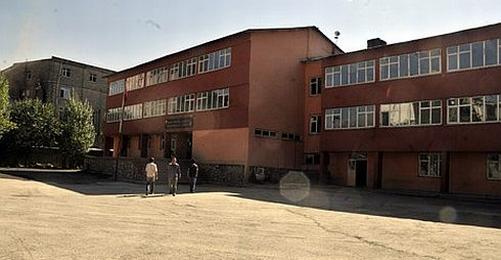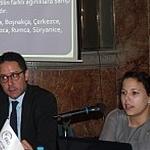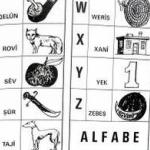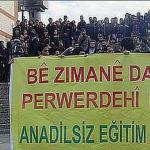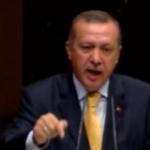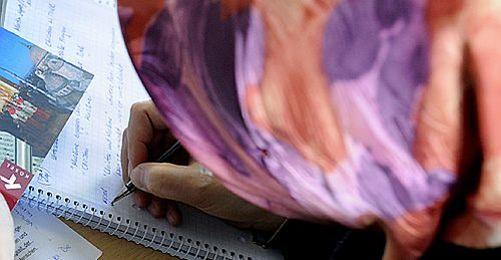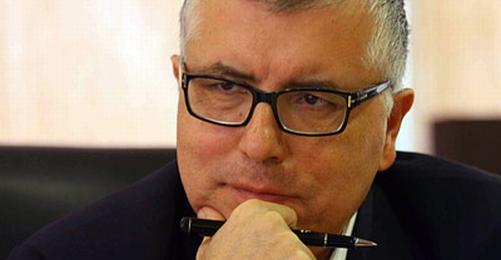Many schools in Turkey's pre-dominantly Kurdish region of the south-eastern Anatolia started a one-week school boycott at the beginning of the new school year. The students claim their right to education in their mother tongue. The Movement for Research on the Kurdish Language, Development and Education (TZP- Kurdî) called for the boycott form 20-24 September.
As reported by the Fırat News Agency, the classrooms of many schools in Diyarbakır, Urfa, Van, Ağrı, Iğdır, Muş, Bitlis, Erzurum and Kars stayed empty on Monday morning (20 September). It was said that the police went to schools in certain regions to obtain data from the principles about the absent students.
In Van for instance, schools in the city centre and in eleven districts joined the boycott. TZP-Kurdî, the Education and Science Workers' Union (Eğitim-Sen), Ankara Kurdish Democracy and the Association for Culture and Solidarity (Kurdi-Der) issued a joint press release in front of the centrally located Domlupınar Primary School. Kurdi-Der Branch President Galip Garip Yaviç said that education in the mother tongue is a right granted by international agreements. Yet, in a country where Kurds are living this right has been deprived, he criticized.
In Urfa, it was said in a press releases that "education in the mother tongue is a fundamental human right". District Mayor Mustafa Bayram from the pro-Kurdish Peace and Democracy Party (BDP) announced: "The Kurdish people do not remain silent on the attempted infliction of assimilation of language on them. We will answer this attempt with using our mother tongue in every field".
President Gül: Do not exploit children for your issue
President Abdullah Gül disapproved of the boycott and addressed the parents of the students: "Do not exploit your children for this issue". Gül held a press conference in the Turkish House in New York since he is currently attending the 65th General Assembly of the United Nations (UN) in the USA.
Answering the journalists' questions on the school boycott he said: "Turkey should withdraw from this sort of topics, the country should get rid of these discussions. Terrorism does not advance any kind of matter, it does not facilitate the solution for any problem, it hinders work that is already brought on its way".
Gül: "Dissuasive effect on investments in the region"
President Gül continued: "Of course our region needs improvement of the infrastructure and more investments. But investments are not being made in regions with this kind of incidents and this sort of agenda; business people will stay away and factories will not be opened. Turkish business people go to Northern Iraq to make business, the create employment and production. But they do not revert to their own country if it is in such a commotion. The ones who are troubled are the people in the region, i.e. our Kurdish fellow citizens. Nevertheless, everybody living in Istanbul, Diyarbakır, Hakkari or Edirne is living in Turkey. In this respect I want to call upon our citizens and upon all our citizens in that region. They should not allow having their children exploited for this kind of issue. If they enlist their children for their cause while we are striving for a bright future of the children, they are causing the biggest harm to them".
Mehmet Ali Şahin, President of the Turkish Grand National Assembly (TMBB), told journalists in Ankara: "Nobody should make politics at the expense of children. Our children should not be used for political aims".
Eğitim-Sen: Ministry's circular thought-provoking
Abdullah Karahan, President of the Eğitim-Sen Diyarbakır Branch, argued: "Up to now, the schools have never been surveyed on the first day. The schools in Diyarbakır are surveyed for the first time this year".
Karahan talked to bianet about the school boycott. He criticized the circular sent out by the National Education Ministry which ordered to register the names of the students who are absent during the boycott:
"In previous years, no surveys were done on the first day of school. This year it is being done. The Ministry sent a circular to the schools. The administration's approach to register who comes to school and who does not shows us that our boycott is effective. It means that the people of the administration are irritated; you might say the administration is anxious. I do not know whether the administration issued the circular to prepare index cards on the students. But keeping this kind of record has been practiced by the state for the past 80 years. It is thought-provoking that schools are surveyed on the first day", Karahan indicated. (SP/VK)





